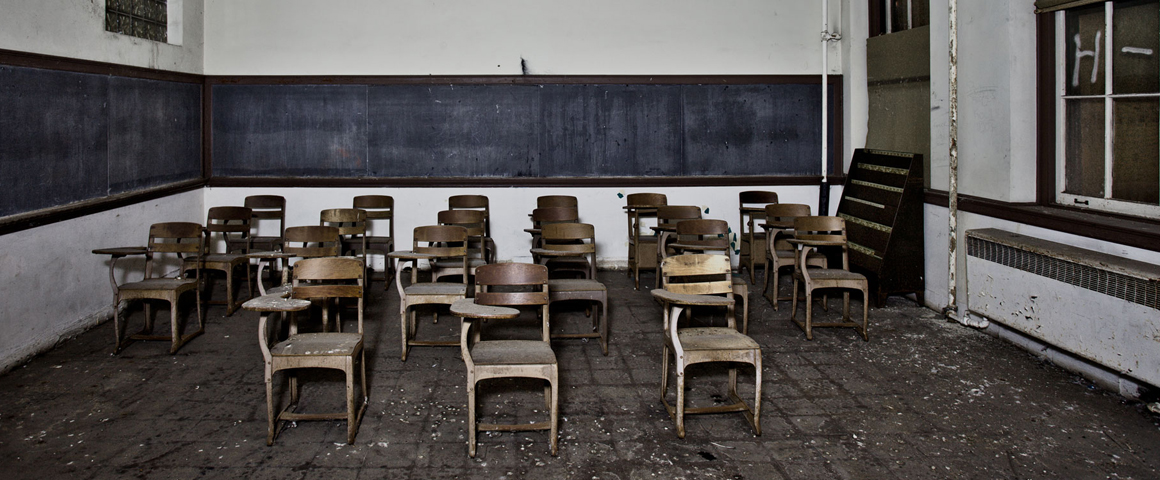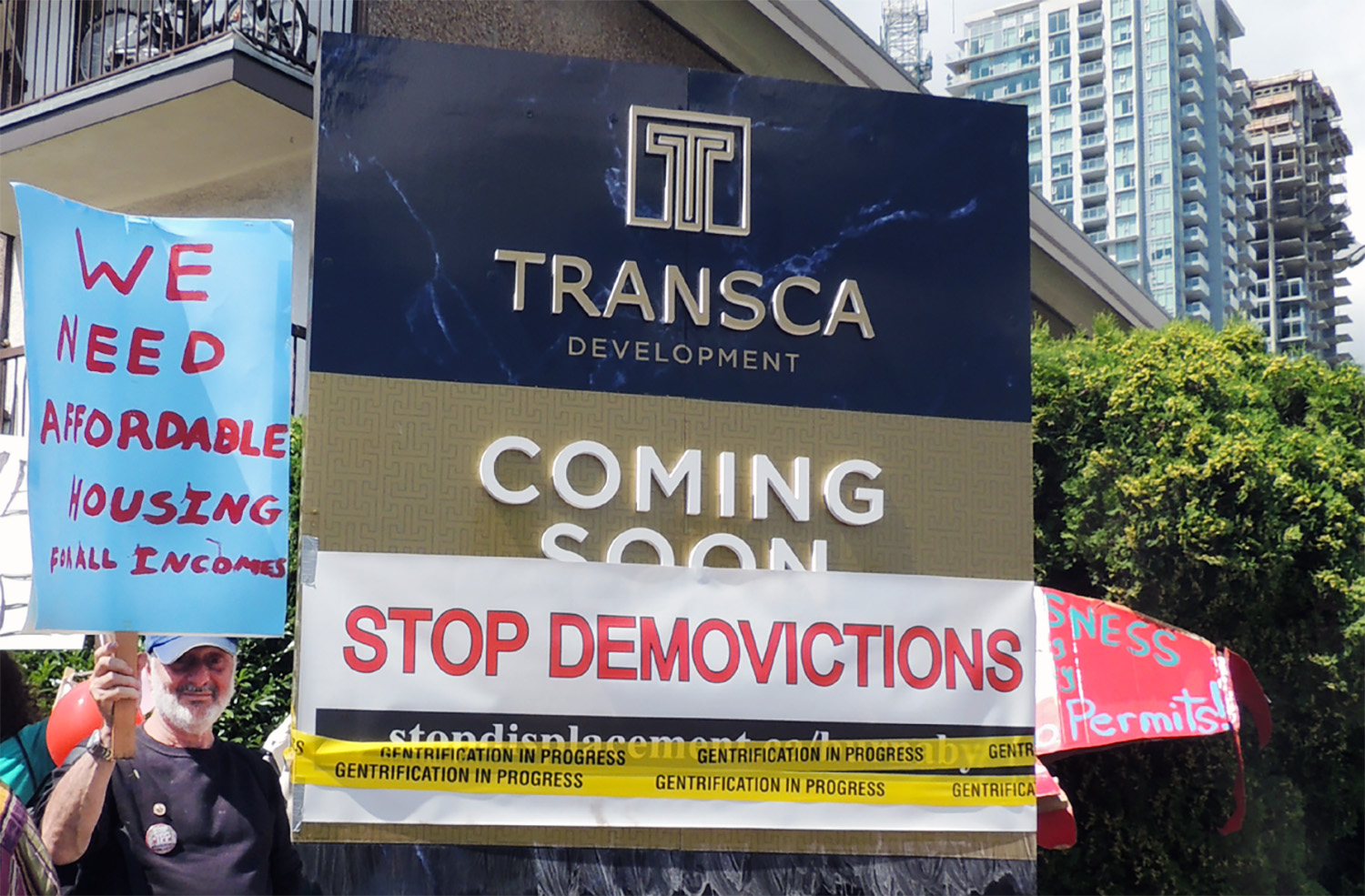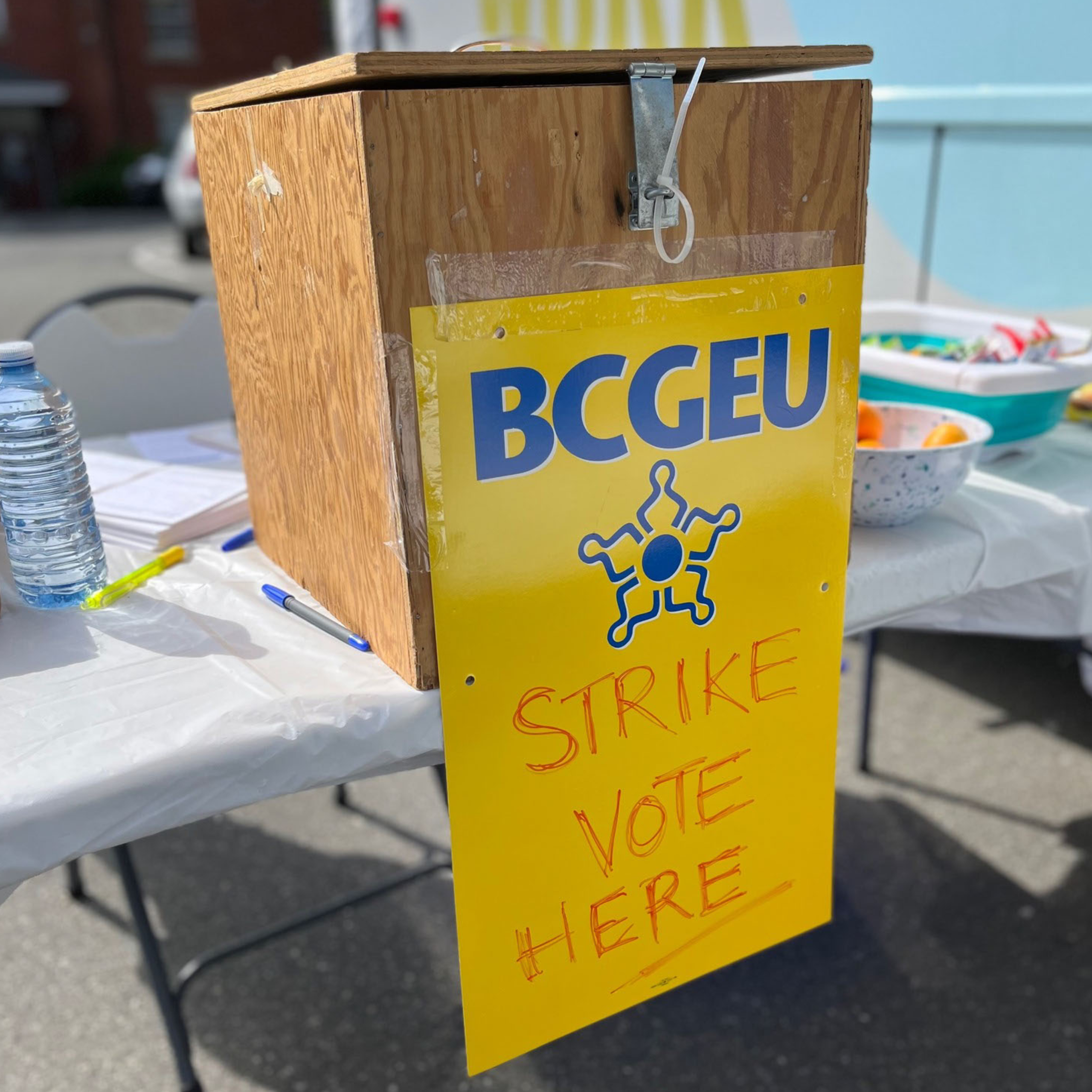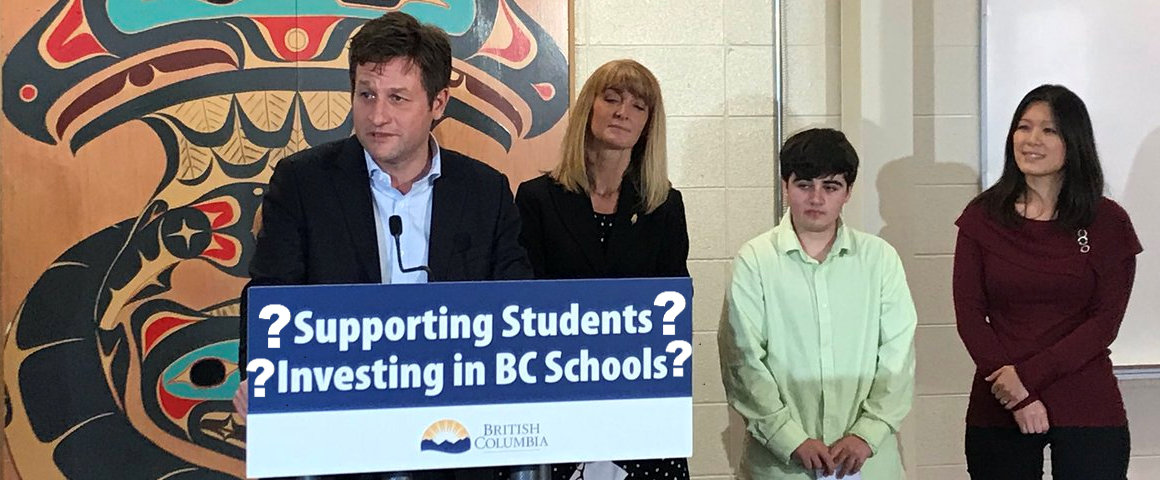Statement from the Communist Party-BC, June 27, 2016
With less than a year before the May 2017 election in British Columbia, anger and resistance are growing over Premier Christy Clark’s anti-public education agenda. The Communist Party of BC will run candidates in several ridings across across the province, campaigning against the Liberal government’s huge injections of taxpayer dollars to private schools, at the expense of crowded and understaffed public schools. It is no exaggeration to state that the Premier’s intent is to create a two-tier school system, one category of elite schools for the rich, and a second class for the poor and working class people. This agenda began to take shape during Clark’s first term as Education Minister under Gordon Campbell, and it must be decisively defeated before it inflicts enormous damage on yet another generation of students.
Under the BC Liberals since 2001, the percentage of British Columbia students attending private schools has more than doubled, and provincial funding of these schools has skyrocketed. At the same time, an estimated 250 public schools have been closed due mainly to underfunding, creating enormous hardship for residents of many communities. The government has forced school boards and communities to devote vast amounts of time and energy to the school closure processes, rather than focussing on ways to improve educational outcomes for students.
Despite the government’s claims that public education is well-funded, the annual amount per student spent by the BC government is a shocking $1000 below the Canadian average, and spending on public education has fallen from about 20% of the provincial budget, to just 15%. The Liberals’ first term in office included the illegal tearing-up of collective bargaining agreements for teachers and health care workers, with the aim of weakening labour resistance to right-wing austerity policies. This attack was accompanied by huge tax breaks for the wealthy and the corporations, taking over $2 billion annually out of provincial revenues. Their “create a crisis” strategy helped set the stage for repeated cuts to education, health care, social programs, and people on disability and social assistance.
Teachers, education workers, students and parents fought back courageously against the impact of this corporate agenda on public schools. Progressive school trustees, in Vancouver and elsewhere, worked hard to help mount a broad and sustained fightback, and to minimize the impact of funding cuts on schools in low-income neighbourhoods, and on students those with special needs, Aboriginal students, ESL and immigrant students, LGBTQ+ students, etc.
Unfortunately, while the NDP opposition has criticized the government, it did not mobilize its supporters to build these grassroots struggles, or to demand full restoration of education funding. Putting its narrow electoral ambitions first, the NDP tried to appear “reasonable,” and failed to challenge the underlying rationale for the Liberal austerity drive – the Fraser Institute lie that transferring billions of dollars from the working class to the rich and the corporations will somehow “improve the economy”.
Now, the government’s education strategy has become fully apparent, as more and more British Columbians put the pieces together. The Premier’s claim to appear “fiscally responsible” by imposing an arbitrary “95% capacity” rule for larger urban school districts, forcing Boards to close schools in order to receive seismic upgrading funds, has been widely condemned as a threat to students, teachers and staff who would suffer the consequences of a massive earthquake. The so-called “family friendly Premier” is in reality a cynical hostage taker, willing to risk thousands of human lives for the sake of protecting tax breaks for the wealthiest citizens and corporations. Faced with a growing public revolt, the Premier engaged in a last-minute PR stunt, offering funds to keep a handful of schools in (mainly) Liberal ridings open, a move which further angered trustees, parents, teachers and students, since it came too late in the 2016-17 budget process to make any real difference.
This political fiasco has led to a closer examination of the real state of education funding in British Columbia. New revelations have exposed the fact that parents of students in private and religious schools get thousands of dollars in tax breaks to offset enrolment fees which often range from $20,000 to $35,000. For example, Revenue Canada grants over $3600 in annual child-care deductions against the tuition cost of each student at private schools until the age of 16. Wealthy families can also establish a family trust, used to pay a child up to $18,000 in dividend income tax free, which will pay most of their private school tuition. For those without such trusts, tuition at religious schools is almost entirely tax deductible. And of course, the BC government kicks in tens of millions of dollars, providing grants over $3,000 in direct subsidies for every private school student. In short, while the impression is given that those who send their children to private schools are “paying their own way,” most tuition costs are actually paid by the general public, including working class families whose neighbourhood schools are being closed to help give tax breaks to the rich!
As the truth about this massive scam comes to light, demands are rising across British Columbia to reverse the government’s deliberate moves to destroy the public school system by encouraging the expansion of private schools.
The Communist Party of BC demands:
- return $2 billion annually to provincial revenues by reversing the Liberal tax breaks for the rich and the corporations;
- end every form of public financial support for private and religious schools;
- restore the billions of dollars in education cuts under the BC Liberals to the public school system;
- work closely with the BCTF, BCCPAC, and other partners in the public education system to make immediate and substantial improvements in teaching and learning conditions, especially for the most vulnerable students, families and communities.




